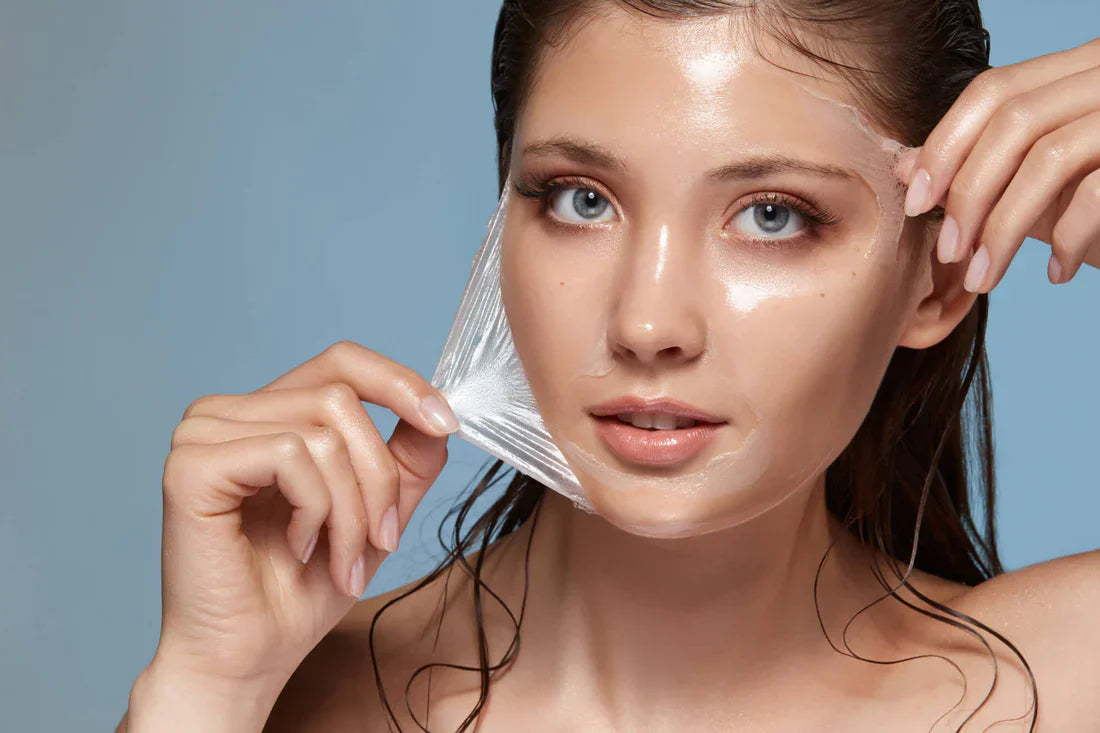
Top 5 Ways to Repair your Skin's Moisture Barrier
Share
Top 5 Ways to Repair Your Skin's Moisture Barrier
Your skin’s moisture barrier is its first line of defense against environmental stressors, bacteria, and pollution. When this barrier becomes damaged, your skin may feel dry, irritated, sensitive, or inflamed. Thankfully, with the right care, you can repair and strengthen your skin’s natural protection.
What Is the Skin Moisture Barrier?
The skin moisture barrier, also known as the stratum corneum, is the outermost layer of your skin. It's made up of corneocytes (dead skin cells) held together by lipids (natural fats)—much like bricks and mortar.
Its primary function is to:
-
Retain moisture
-
Repel harmful microbes and pollutants
-
Prevent irritants and allergens from penetrating
When this barrier is compromised, your skin struggles to hold water, leading to dryness, sensitivity, breakouts, and inflammation.
✅ Top 5 Ways to Repair a Damaged Skin Barrier
1. Identify the Root Cause
Understanding what damaged your barrier is the first step to repair. Common culprits include:
-
Over-exfoliation
-
Harsh cleansers
-
Pollution and UV exposure
-
Poor diet or dehydration
-
Stress or medical conditions
🔍 Solution: Observe recent changes in your skincare routine, environment, or lifestyle. Once the trigger is removed, healing becomes easier.
2. Avoid Harsh Cleansers
Many facial cleansers contain sulfates, alcohol, or high pH ingredients that strip your skin of its natural oils.
🧴 Solution: Switch to gentle, hydrating cleansers that are:
-
Sulfate-free
-
Fragrance-free
-
pH-balanced
Look for ingredients like ceramides, glycerin, or hyaluronic acid.
3. Maintain Your Skin’s Natural pH
Your skin's optimal pH lies between 4.5 and 5.5, which is slightly acidic. This acidity helps prevent bacterial infections and inflammation.
⚖️ Solution: Choose products that are pH-balanced and avoid DIY treatments or bar soaps with high alkalinity. Overly alkaline products can disrupt the skin barrier and worsen sensitivity.
4. Eat a Skin-Supporting Diet
What you eat reflects on your skin. A nutrient-deficient diet can delay skin repair and increase barrier damage.
🥗 Solution: Include:
-
Healthy fats (omega-3s from fish, flaxseed, walnuts)
-
Vitamin E and C (antioxidants that repair damage)
-
Protein (essential for collagen production)
-
Plenty of water for hydration
Avoid processed foods, excess sugar, and alcohol, which can worsen inflammation.
5. Build a Simple Skincare Routine
Using too many products can overwhelm and irritate your skin—especially when your barrier is damaged.
🧴 Solution:
-
Stick to the basics: Cleanser → Moisturizer → Sunscreen
-
Introduce actives (like retinol or exfoliants) slowly and one at a time
-
Use fragrance-free, hypoallergenic products
-
Apply a barrier-repair moisturizer with ceramides, squalane, or panthenol
🗓️ Consistency matters more than quantity. If in doubt, consult a dermatologist to customize a routine that suits your skin type and condition.
✅ Final Thoughts
A damaged skin barrier is not permanent—but it does require patience and proper care. By identifying the cause and making small changes to your routine, you can restore your skin’s strength, moisture, and natural glow.
